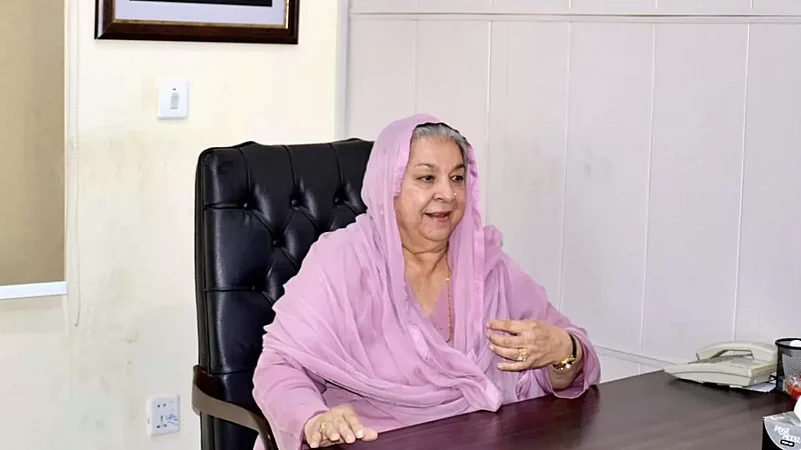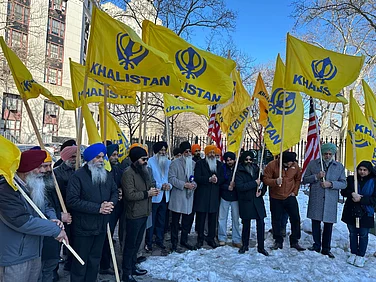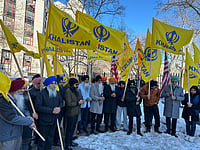In a shocking development, Dr. Yasmin Rashid, the former health minister of Pakistan's Punjab province, has been identified as the "key planner" behind the May 9 attack on the historic Jinnah House, also known as the Corps Commander House. The Punjab police chief, Dr. Usman Anwar, made this revelation after an anti-terrorism court discharged her from the case. However, the Punjab Police has announced their intention to challenge the court's decision in the high court, as reported by Dawn News on Sunday.
During a press conference held at the Central Police Office (CPO) in Lahore, Punjab police chief Dr. Usman Anwar, accompanied by Lahore police chief Bilal Siddique Kamyana, expressed confidence in proving that the PTI (Pakistan Tehreek-e-Insaf) leaders involved in the attack were not innocent. He stated, "We detected 41 calls of the PTI leader Yasmin Rashid, among other party leaders, which were enough to produce as evidence in a court of law to prove them as planners and perpetrators of the attacks on the military installation."
In a startling revelation, Dr. Usman Anwar played video clips during the press conference, claiming that they showed Yasmin Rashid "planning the attack on Jinnah House." The police chief further discussed the involvement of other key PTI leaders, including Hammad Azhar, Mian Aslam Iqbal, and Murad Raas, in the violent incidents. According to Anwar, the police have traced call records of these suspects, establishing their direct involvement in the attacks on military installations.
The PTI found itself embroiled in controversy when protesters, allegedly affiliated with the party, targeted civil and military properties on May 9 following the arrest of PTI chairman Imran Khan in the Al-Qadir corruption case. Although Imran Khan was later released on bail, the PTI supporters launched attacks on various military installations across the country, including the General Headquarters (GHQ) in Rawalpindi, Lahore's Jinnah House (residence of the Corps Commander), Mianwali airbase, and the ISI building in Faisalabad.
The Punjab police chief announced their intention to challenge the ATC's decision to release Yasmin Rashid and Hammad Azhar, emphasizing that they possess evidence of their involvement in inciting the attacks on military installations. The police's forensic analysis report confirmed Yasmin Rashid's presence outside the corps commander's house during the attack, supported by video and audio clips submitted for analysis.
Dr. Usman Anwar revealed that a total of 215 calls were made to incite the mob that attacked the military installations in Lahore. Among these calls, 41 were made by Yasmin Rashid, 75 by Mahmoodur Rasheed, 50 by Ijaz Chaudhry, 16 by Mian Aslam Iqbal, 23 by Murad Raas, and 10 by PTI leader Hammad Azhar. The police chief also mentioned that 50 calls originating from Mianwali were linked to the top five PTI leaders, relating to the attack on the Mianwali airbase. Furthermore, 88 calls were traced near the GHQ in Rawalpindi on May 8 and May 9.
Dr. Usman Anwar informed that the police have identified a total of 708 suspects allegedly involved in the attack on the corps commander's house, out of which 125 have been arrested so far.
(With PTI Inputs)


























